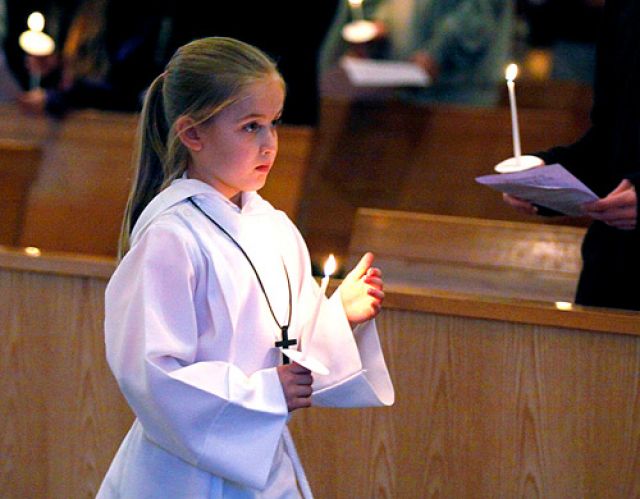I left with a sense that I had played a small part in this young man’s journey toward ordination. But why should I be surprised? Catholic education, like the parable of the mustard seed, sows seeds that lead to ordination, religious life, married life or single life.
Unlike in the past, today when we speak of vocations we don’t just speak about priestly vocations or religious life. Today’s approach is grounded in many Church teachings and documents, such as Apostolicam Actuositatem, the Vatican II decree promulgated by Pope Paul VI about the Apostolate of the Laity. That document was followed by a number of other statements that recognize the importance of all types of vocation, some of which lead to priestly or religious vocations, others to a single or married life.
Most students will not choose priestly vocation or religious life but they should be presented with the knowledge and the experience of these vocations so they can make informed choices in their discernment. We need the laity to know that they have a vocation that flows from their baptism and that they should be supported and encouraged in growing in the knowledge of that vocation. At the same time, we should present information and experiences so students can give serious consideration to all vocations.
Let’s face it, if students are not exposed to information about priestly or religious life in Catholic schools, where are they going to encounter it? The messaging in our current culture does not speak highly of these types of commitments, and often our families are silent on the topic.
There are a number of ways vocations are being shared and taught to students. For example, St. Marcellinus Secondary School in Mississauga, Ont., holds a vocation day along the lines of a school career day. The local chaplaincy leader, Shane Byrne, invites a number of priests and lay ministers who work in university chaplaincy to speak to students. The school sets up displays from religious orders, the guests address students in the classroom and then they hold a common lunch. Students hear first-hand the faith journey of these men and women, and the challenges and the joys of their ministries.
As one student said, “While I won’t become a priest, I have a greater understanding of why people choose that ministry and I can appreciate the scholarship and the sacrifice more than I did before.”
Each year the Archdiocese of Toronto celebrates those about to be ordained at an evening celebration called the Ordinandi Dinner, but during the day an ordinandi student program invites students from the six GTA school boards to dialogue with men and women who are prepared to commit to a priestly vocation or religious life. This year more than 800 young people participated in the luncheon.
Recently, the Dufferin-Peel Catholic District School Board and the Archdiocese of Toronto, along with Salt + Light Media and the Catholic Curriculum Corporation developed a comprehensive school program on vocations. The program is titled “Make the Call, Vocations Lessons.” The program supplements the current religious education curriculum in both elementary and secondary schools. It centres on vocational themes that are age appropriate and presented in Grades 2, 5, 8 and 12. Each grade level consists of two rich lessons with a DVD that showcases the stories of individuals as they share their vocation — as a married couple, in single life, priestly vocations or religious vocations. The inexpensive program teaches students that we all have a vocation to live out and encourages them to think about how they are living out theirs.
Elsewhere the St. Clair Catholic District School Board works with the Diocese of London vocation director and religious orders to discuss religious life and ordained ministry by having local and ordained speak to students. Using a retreat setting, students receive an opportunity to reflect on the notion of ministry and what it means from both a religious perspective and for those who choose to be married or stay single.
There are many ways to plant the seed of vocation: ordinandi dinners; inviting priests, sisters and brothers into schools to discuss their journey; retreat days that look at religious life and priestly vocation; days of prayer; making time in class for discussion and discernment. There was a time when we thought vocation discussions were best suited for the university level, but the wisdom of the day realizes that understanding vocations begins very early in life. It starts in the family, often around the dinner table or talks in the car. Seeds planted here are supported in elementary schools with programs and days of reflection, and they are further developed in our secondary schools, in our parishes and then through discernment at university and into adult years.
Educators and parents need to encourage students to reflect on their vocation, whether it is a call to married, single, ordained or religious life. If we get it right in our schools and in our families we will have a rich variety of men and women who are consciously aware of their vocations.
Our Church, our schools and our community will be strengthened and enriched by having this conversation.
If your children and grandchildren aren’t discussing vocations then it might be time to start asking, “Why not?”
(John B. Kostoff is the Director of Education for the Dufferin-Peel Catholic District School Board and author of Auditing Our Catholic Schools.)


